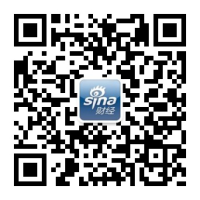11月15日,英国剑桥词典(Cambridge Dictionary)宣布2023年的年度词汇是“Hallucinate”(产生幻觉)。
同时也给出了选择该词作为年度词汇的原因:“该词的新内涵触及了人们谈论人工智能的核心原因(the new meaning gets to the heart of why people are talking about AI)。”

传统上,hallucinate(“产生幻觉”)指某人似乎感觉到不存在的事物,通常是由于健康状况或药物使用所导致的。

英国《卫报》的报道指出:
The original definition of the chosen word is to “seem to see, hear, feel, or smell” something that does not exist, usually because of “a health condition or because you have taken a drug”.
这个词本来是指“看、听、感觉或闻到”不存在的事物,通常由健康状况或毒品导致。
不过,这个词现在有了新的定义:
When an artificial intelligence hallucinates, it produces false information.
当人工智能“产生幻觉”时,就会生成虚假信息。
 ▲图源:视觉中国
▲图源:视觉中国对于AI幻觉,剑桥词典认为这些内容有时候看上去“十分荒谬”,有时候又“貌似有道理”,尽管其中事实完全不对或压根不合逻辑。
AI hallucinations, also known as confabulations, sometimes appear nonsensical. But they can also seem entirely plausible – even while being factually inaccurate or ultimately illogical.
confabulations原意为对话、闲谈,剑桥词典认为该词也可以表达AI致幻的含义。

剑桥词典今年新增的约6000个字词及定义中,有不少反映了AI和计算机技术发展相关的表述。
prompt engineer
提示工程师/AI沟通师
large language model
大型语言模型
GenAI
生成式人工智能
剑桥大学AI伦理学者Henry Shevlin表示,今年选择了一个“生动的心理性动词”,“hallucinate”生动表达了主体正经历与现实的脱节。这一语言选择反映了一种深刻又微妙的观念转变:是AI在产生幻觉,而不是使用者。
Dr Shevlin, from the University of Cambridge, said: "hallucinate" is an evocative verb implying an agent experiencing a disconnect from reality.
This linguistic choice reflects a subtle yet profound shift in perception: the AI, not the user, is the one hallucinating.
来源: 剑桥英语词典 卫报 LearnAndRecord 翻吧 21世纪英文报

VIP课程推荐
APP专享直播
热门推荐
收起
24小时滚动播报最新的财经资讯和视频,更多粉丝福利扫描二维码关注(sinafinance)








